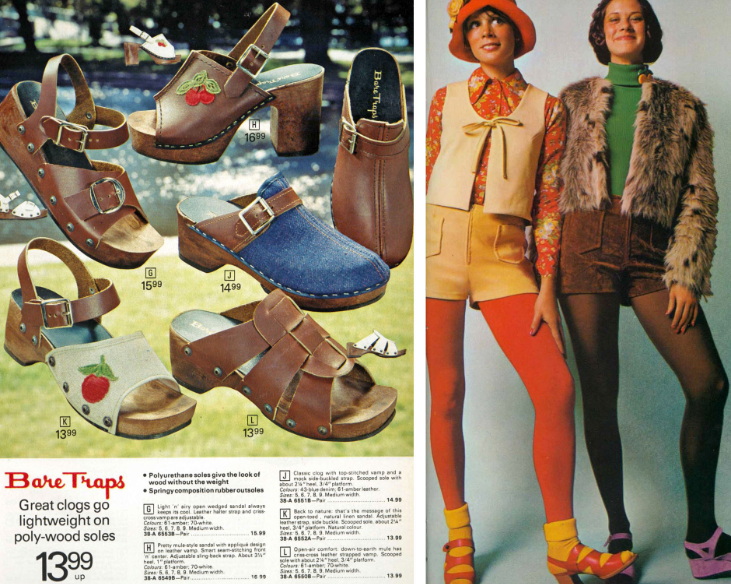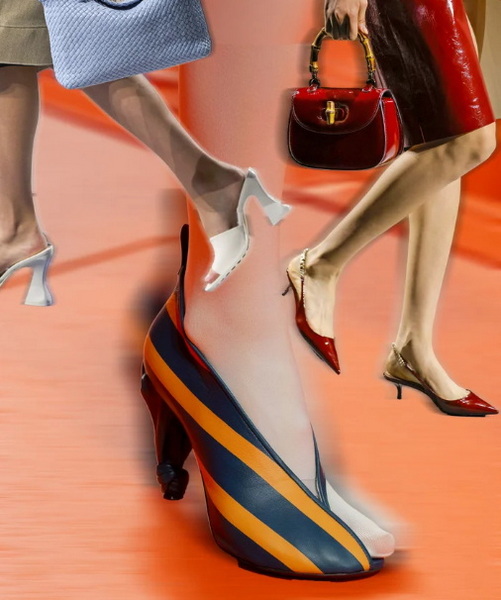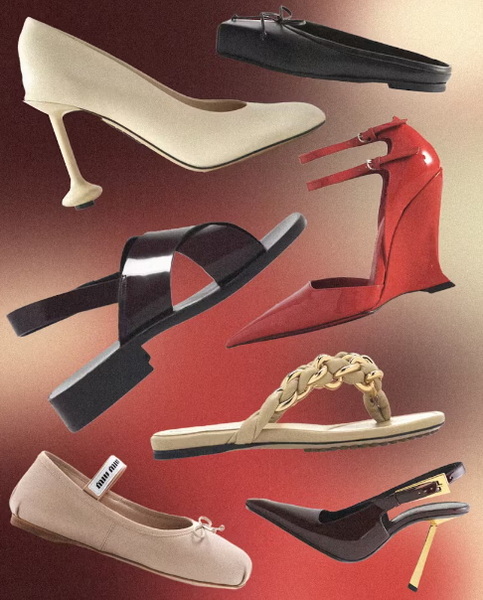Content Menu
● The Rise of Visible Footwear
● Popular Shoe Styles of the 1920s
>> T-Strap Heels
>> Mary Jane Shoes
>> Oxford Shoes
>> Pumps
● Materials and Colors
>> Leather
>> Satin and Metallic Finishes
>> Colors
● Heel Heights and Shapes
>> Louis Heels
>> Cuban Heels
>> Spike Heels
● Embellishments and Decorations
● Sports and Casual Shoes
>> Canvas Tennis Shoes
>> Keds
● The Influence of Dance
● Cultural Significance
● Handmade vs. Mass-Produced Shoes
● The Legacy of 1920s Shoe Fashion
● Conclusion
● FAQ
>> 1. What was the most popular shoe style for women in the 1920s?
>> 2. What materials were commonly used in 1920s women's shoes?
>> 3. How did the rise of dance culture influence 1920s shoe design?
>> 4. Were there any casual shoe options for women in the 1920s?
>> 5. How did 1920s shoe fashion reflect broader societal changes?
● Citations:
The 1920s was a decade of significant change in women's fashion, and footwear was no exception. As hemlines rose and ankles became visible, shoes took center stage in a woman's outfit. This article will explore the various types of shoes that were popular among women during the Roaring Twenties, their characteristics, and the cultural significance they held.

The Rise of Visible Footwear
Prior to the 1920s, women's shoes were largely hidden beneath long skirts and dresses. However, as hemlines began to rise, shoes became an essential part of a woman's visible ensemble[1]. This newfound visibility led to a boom in shoe design and production, with a focus on creating stylish and eye-catching footwear.
Popular Shoe Styles of the 1920s
T-Strap Heels
One of the most iconic shoe styles of the 1920s was the T-strap heel. This design featured a strap that ran from the toe of the shoe up the center of the foot, intersecting with another strap that wrapped around the ankle[2]. T-strap heels were particularly popular for evening wear and dancing.
Mary Jane Shoes
Mary Jane shoes were another popular style during the 1920s. These shoes featured a single strap across the top of the foot and a rounded toe. They were often worn for both casual and formal occasions[1].
Oxford Shoes
Oxford shoes, characterized by their closed lacing system, were a popular choice for everyday wear. These shoes were typically made of leather and featured a low heel, making them comfortable for walking[7].
Pumps
Simple pumps with a modest 2-inch heel were a staple in many women's wardrobes. These versatile shoes could be worn for various occasions and came in a range of colors and materials[8].
Materials and Colors
Leather
Most 1920s shoes were made of leather, including calfskin, kid, suede, lizard, alligator, python, and goat. Both matte finish and shiny patent leather were popular for daytime wear[9].
Satin and Metallic Finishes
For evening wear, satin pumps in black or white were highly sought after. As the decade progressed, metallic finishes such as silver and gold became increasingly popular[9].
Colors
While black, brown, and beige (often called "blonde") were common colors for daytime shoes, the 1920s also saw an increase in more vibrant hues. Pastel blue, pink, emerald green, and even two-tone color combinations were not uncommon[4].
Heel Heights and Shapes
Louis Heels
Louis heels, also known as tango, curved, Spanish, or vintage heels, were popular for daywear. These heels were typically about 2 inches high and had a distinctive curved shape[9].
Cuban Heels
As the decade progressed, the curved Louis heel was often replaced by the sturdier Cuban or military heel. These heels were about 1-2 inches high and had a more blocky shape[9].
Spike Heels
Towards the end of the 1920s, higher and slimmer "spike" heels began to appear, especially on evening shoes[9].

Embellishments and Decorations
1920s shoes often featured elaborate decorations, particularly on evening wear styles. Some common embellishments included:
- Buckles and buttons covered in precious stones or metal sequins
- Rhinestones and diamante
- Cut-outs on the sides, toes, and straps
- Hand-painted designs inspired by Asian or Greek motifs
- Beading and embroidery[2][9]
Sports and Casual Shoes
Canvas Tennis Shoes
The 1920s saw the rise of the canvas tennis shoe, a precursor to modern sneakers. These flat, lace-up shoes were popular for sports and casual wear[7].
Keds
Keds, a brand of canvas sneakers, gained popularity during this decade. They were comfortable, affordable, and suitable for various casual activities[5].
The Influence of Dance
The popularity of dances like the Charleston had a significant impact on shoe design. Shoes needed to be secure on the foot while allowing for quick, energetic movements. This led to the prevalence of strapped shoes like T-straps and Mary Janes[2].
Cultural Significance
The changing styles of women's shoes in the 1920s reflected broader societal shifts. As women gained more independence and freedom, their footwear became more expressive and diverse. The ability to show off one's shoes was seen as a form of liberation and self-expression[1].
Handmade vs. Mass-Produced Shoes
While many shoes were mass-produced during this era, there was also a market for handmade, custom shoes. Skilled artisans could create unique, personalized footwear for those who could afford it[3].
The Legacy of 1920s Shoe Fashion
Many of the shoe styles popularized in the 1920s continue to influence fashion today. T-strap heels, Mary Janes, and Oxford shoes remain popular choices for both vintage enthusiasts and modern fashionistas[5].
Conclusion
The 1920s was a transformative decade for women's footwear. As hemlines rose and social norms shifted, shoes became an essential part of a woman's visible outfit. From the iconic T-strap heels to comfortable Oxford shoes, the variety of styles reflected the diverse needs and tastes of women during this era. The emphasis on decoration, comfort, and self-expression in 1920s shoe design continues to inspire fashion today, making this decade a pivotal moment in the history of footwear.

FAQ
1. What was the most popular shoe style for women in the 1920s?
The T-strap heel and Mary Jane shoes were among the most popular styles for women in the 1920s. These shoes featured straps that secured them to the foot, making them ideal for dancing and showing off with the shorter hemlines of the era.
2. What materials were commonly used in 1920s women's shoes?
Leather was the most common material for 1920s women's shoes, including calfskin, kid, suede, and exotic leathers like lizard and alligator. For evening wear, satin and metallic finishes were popular choices.
3. How did the rise of dance culture influence 1920s shoe design?
The popularity of dances like the Charleston led to the design of shoes that were secure on the foot while allowing for quick movements. This resulted in the prevalence of strapped shoes like T-straps and Mary Janes, which provided both style and functionality for dancers.
4. Were there any casual shoe options for women in the 1920s?
Yes, canvas tennis shoes and brands like Keds gained popularity as casual footwear options. Oxford shoes were also commonly worn for everyday activities and were considered more practical than dressy heels.
5. How did 1920s shoe fashion reflect broader societal changes?
The changing styles of women's shoes in the 1920s mirrored the increasing independence and freedom of women during this era. As hemlines rose and ankles became visible, shoes became a form of self-expression and a symbol of the changing role of women in society.
Citations:
[1] https://memery.co.uk/collections/1920s-shoes
[2] https://blog.americanduchess.com/2022/11/glamorous-1920s-shoes-and-the-history-behind-them.html
[3] https://www.youtube.com/watch?v=jS_iiyA3SGU
[4] https://the-roaring-twenties.com/20s-woman-costume/1920s-shoes/
[5] https://www.yahoo.com/lifestyle/shoe-trends-defined-1920s-fashion-140051910.html
[6] https://www.youtube.com/watch?v=dZII90L6LF8
[7] https://www.satra.com/bulletin/article.php?id=2043
[8] https://www.museumscollections.norfolk.gov.uk/article/30267/Walking-jewellery-1920s
[9] https://antiquarianprintshop.com/blogs/latest/the-history-of-shoes-in-the-1920-s

















